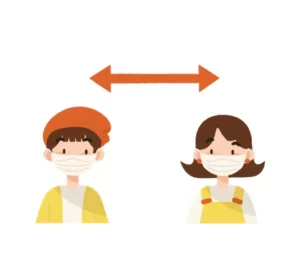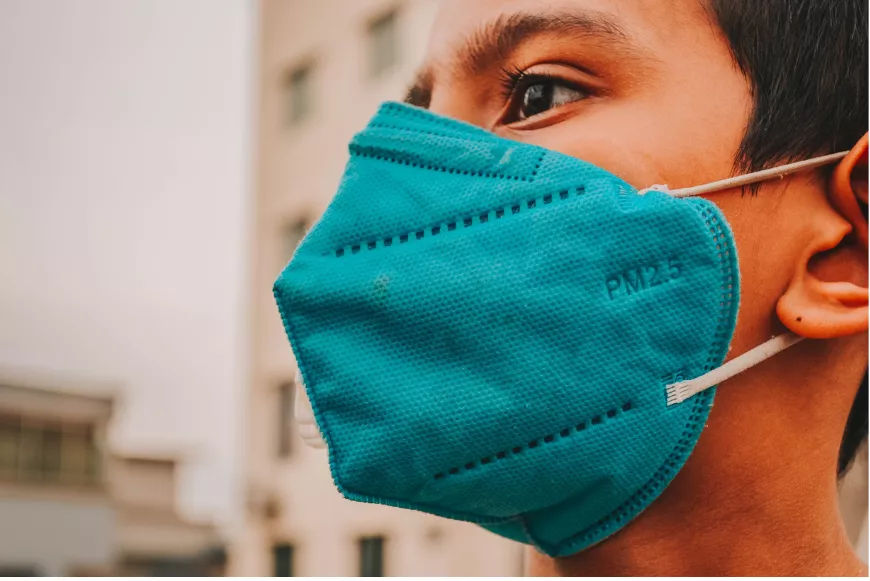Political Partisanship Can Be Deadly
January 23, 2024

This article originally appeared here.
Expression of diverse ideas and beliefs is a critical feature of a robust democracy and the free exposition of differences of opinions is a cherished aspect of U.S. political life. Yet, when the issue at hand is the public’s health, political differences that reify into polarization can be dangerous. This is the message of an excellent article published last October in the journal Perspectives on Psychological Science.
InThe Costs of Polarizing a Pandemic: Antecedents, Consequences, and LessonJay J. Van Bavel of New York University and colleagues demonstrate that political partisanship during the pandemic cost lives. The article is a sobering, straightforward analysis of the ways in which political polarization drove some to refuse to follow public health guidance, resulting in unnecessary illness and death. “Unfortunately,” the authors write, “polarized beliefs are far more consequential in the domain of public health, in which differences of opinion can have deadly outcomes.”
Distancing, Masking, and Vaccination Work
The authors rightly take for granted that three public health recommendations during the pandemic are effective in limiting spread and acquisition of the virus that causes Covid-19 and in reducing the risk for severe illness and death: physical distancing, masking, and vaccination. They show that in each instance, U.S. counties with predominantly Republican residents were less likely to embrace these measures than counties with predominantly Democratic residents. And they show that “Republican counties were more likely to report increased infections and mortality as time passed.” In the case of vaccination against the coronavirus SARS-CoV-2, they cite research showing that “Partisanship was by far the strongest predictor of county-level vaccination rates…This partisan gap in vaccination appeared to be driven, in part, by misinformation that circulated more prominently in Republican-leaning compared with Democratic-leaning news media and social networks.”
Van Bevel et al calculate that “After the vaccination program was fully implemented, the estimated difference in death rates between the average Republican-leaning county and the average Democratic-leaning county was 78 people per 100,000.” That translates, they conclude, into 140,000 preventable deaths among Republicans.
As Van Bevel and colleagues point out, social affiliation is a powerful psychological factor that motivates people to adhere to whatever their in-group recommends. In the case of Covid-19, public health officials recommended social distancing, wearing face masks, and vaccination as evidence-based steps to limit the devastation of the pandemic. But uniquely in the U.S., conservative politicians and media sources downplayed or even denigrated these recommendations, often wrongly insisting that the recommended measures are themselves dangerous. The data showing, for example, that vaccination against Covid-19 is safe and effective in reducing the risk for severe illness and death are unassailable; it is simply wrong to advocate against vaccination or to promote myths about vaccine risks. Yet this is exactly what some partisan politicians have done and Van Bavel et al document based on a careful review of the data that those attitudes cost lives.
Political Elites Receive the Blame
In their article, Van Bavel and colleagues also note that this situation appears to be unique among developed nations to the U.S. In other countries, like the U.K. and Canada, conservative politicians endorsed public health measures like vaccination and those countries fared better than the U.S. during the pandemic. Van Bavel and colleagues place much of the blame for the devastating effects of polarization on political elites. They argue that because identification with social groups, like political parties, is so strong, people are highly susceptible to believing whatever in-group leaders say, even when it is contrary to evidence and poses a clear threat to health and well-being. “Political leaders and partisan elites can either seed polarization by expressing skepticism for public-health recommendations,” they argue, “or prevent such division by presenting a united front across parties…”
We want a society in which people are free to express divergent ideas on a wide variety of topics. Yet we have not figured out how to handle this when the topic involves scientific evidence. In many instances when biology is involved, there really aren’t two sides to the issue. For things like whether vaccinations are safe and effective we have an overwhelming scientific consensus that is only disputed by a small group of ideologically-driven skeptics. Yet during the pandemic some politicians embraced the naysayers, contradicting public health evidence and guidance and misleading millions of people, putting their health and lives at risk. Is it possible to educate political and media leaders about how science works and stop them from embracing renegade ideas? Will the fact that more than a hundred thousand lives were lost and countless more people seriously sickened persuade political and media elites in the U.S. to advocate for public health science, as was the case during the pandemic in other countries?
We highlight the Van Bavel et al paper because it exposes a true American tragedy, one that could have been avoided. To be sure, communications from public health agencies were not uniformly clear or consistent during the pandemic and we and others have repeatedly called for more attention to improving the way in which agencies like the U.S. Centers for Disease Control and Prevention (CDC) transmit public health recommendations to the public. Nevertheless, the recommendations for physical distancing, masking, and vaccinating have proven robust and we needed our political leaders on all sides to come together with clear messages supporting them. In the case of the Covid-19 pandemic, political partisanship clearly worked to the detriment of the public’s health. Hopefully, we will learn from this experience as we mourn the lives of those unnecessarily lost to misguided polarization.
Related Posts

Misrepresentation Abound From Members of Congress
Posted in COVID
Beleaguered former head of NIAID Anthony Fauci has maintained great scientific rigor while being attacked by Congress. What the most recent hearing tells us about our nation's polarization and people's tolerance for uncertainty.

As the Data Roll In, We Get a Better Sense of What Worked During the Pandemic
Posted in COVID
While there are some things about COVID and the pandemic that are still unclear, there are many things we can be sure about, including the fact that masks work.

The Long Covid Mystery Continues to Grow
Posted in COVID
What have we learned about Long Covid, especially its relationship to the human brain? The science continues to develop, but there's still a lot we don't understand.